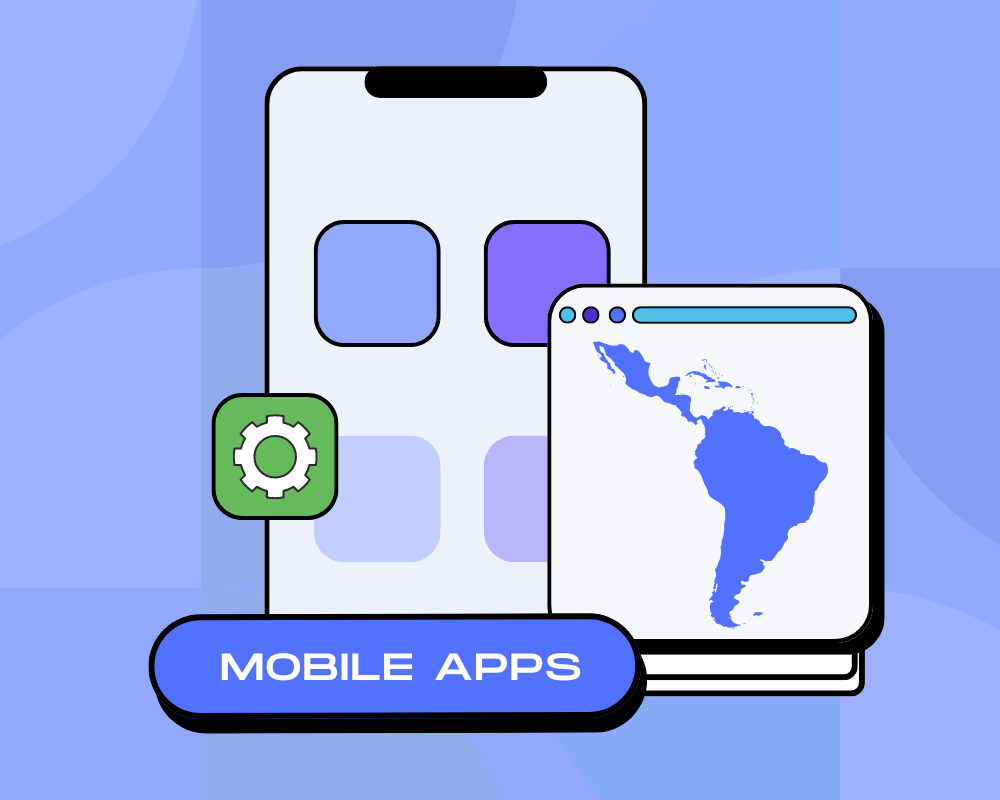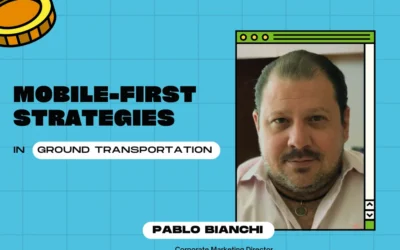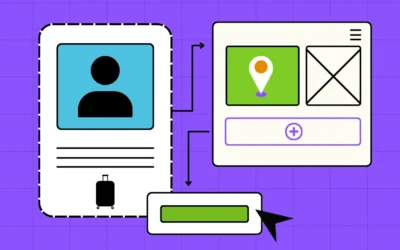The digitization of the bus sector can be advanced with efficient mobile apps that help improve the passenger experience and optimize sales.
In recent years, Latin America has undergone a digital transformation, largely driven by the proliferation of smartphones, increasingly widespread access to the Internet, and the growing demand for digital services. This phenomenon has altered millions of people’s daily lives, changing how they communicate, shop, work, and entertain themselves.
Mobile applications are at the heart of this transformation, which have gone from simple technological complements to essential components of our daily routine.
From instant messaging apps, which keep families and friends connected, to eCommerce platforms, which facilitate purchases from anywhere. Mobile apps have redefined the way we interact with the world. In the region where technological adoption has accelerated, these applications reflect global trends and respond to local needs and particularities.
For example, this is the case in countries such as Mexico and Brazil, where using mobile apps to access transportation is increasingly common. This use can be to purchase private transportation or to buy tickets online to travel by bus.
However, it is likely that as a bus company, you still have some doubts about the implementation of mobile apps: will it be useful to sell tickets through apps, is it expensive to develop an app, do I need a specialized team to develop my app, do travelers use apps to buy tickets?
That is why we have compiled useful and necessary information for you to make an informed decision about the impact of this digital channel among users in the region.
The digitization of sectors such as transportation, education, and healthcare presents great growth opportunities, along with the potential for expansion of fintech services and eCommerce.
Challenges of mobile apps
App uninstalls, according to AppsFlyer, are a major challenge. Users are uninstalling apps more frequently in recent years for many reasons, including:
1) The growing number of apps available to users.
2) Very high expectations and often a mismatch between what was promised in the campaign and the actual app experience.
3) Discovery state of mind, especially in games, where apps are installed without much thought and therefore uninstalled just as quickly.
4) Limited storage on the user’s device, and prioritization of high-resolution photos and videos.
5) Data privacy issues make users more wary of apps that ask them to share sensitive data.
Since the uninstall rate is the highest on the first day, it is critical to complete the onboarding process. That is why AppsFlyer recommends that this process be smooth and engaging for users. To reduce the uninstall rate between day 1 and day 7, the first interactions must be designed to generate a solid and lasting connection with the user.
The best way to reduce the uninstall rate of an application is to have an application that guarantees a better user experience. If an app doesn’t work, all the marketing data in the world won’t stop the user from deciding to delete the app.
Another challenge to be faced is the average cost of developing a mobile application from scratch since not all companies have the specialized equipment to do so. According to research by Good Firms, the average price of a simple application is between 70,000 and 80,000 pesos. The cost of a medium-complexity application is between 80,000 and 100,000 pesos. While a complex application can cost between 90,000 and 130,000 pesos.
It is therefore important to have an ally that has the necessary experience to develop mobile apps that are useful and safe for users.
Reservamos SaaS, partner to implement mobile apps in the bus sector
Based on a mobile-first approach —a design and development strategy that prioritizes the creation of optimized experiences for mobile devices— Reservamos SaaS develops mobile applications that help bus companies connect with their travelers more directly and increase their loyalty through a better-qualified digital sales channel that guarantees high conversion rates.
The apps developed by Reservamos SaaS are customized for each bus company; with the available eCommerce functions and access to the different management tools. With ratings of +4.5 stars in digital stores.
- Through apps, companies can:
- Reach more travelers and attract new users organically.
- Generate higher brand satisfaction.
- High conversion rates.
- Increase recurring sales, traveler retention, and loyalty.
- Increase conversion, completed transactions, and more secure payments.
- Add services and products such as ancillaries, and e-wallets, among others to increase traveler loyalty.
- Optimize internal processes and reduce the time between operational teams.
- Increase competitiveness in the market, and improve visibility and reach.
Grupo IAMSA bets on mobile apps to increase its conversion rate
Grupo IAMSA, a leading Mexican transportation company, needed to adopt a mobile-first approach to offer a closer and more consistent experience to its digital travelers. With the support of the Reservamos SaaS technology and development team, IAMSA undertook a process of strengthening its digital sales channels by developing mobile applications for its various bus lines: ETN Turistar, Costaline AERS, and Autovías La Línea (GHO).
Thanks to Reservamos SaaS’ technological infrastructure, IAMSA has been able to unify its eCommerce experience, ensuring optimized, simple, and secure sales flows that are adapted to the needs of travelers and the bus company’s commercial objectives.
In addition, having efficient applications has brought important benefits to IAMSA. Being a sales channel very close to the user, they have been able to implement much more effective marketing strategies and send messages that encourage the purchase of tickets, such as discounts, announcements of new features, and additional services, among others.
Having mobile applications has been key for IAMSA, as it has given greater clarity on strategies to strengthen not only the acquisition of users but has allowed migrate digital travelers to different applications, to build loyalty and increase retention. In ETN Turistar alone, 1 out of every 3 users who access the app makes a purchase.
In addition to development efforts, the Reservamos SaaS team has continuously monitored the performance of the apps in the Android and iOS stores. This has allowed us to implement ASO (App Store Optimization) strategies to improve positioning in digital stores and increase the number of downloads.
Benefits of using apps to sell bus tickets in Latam
The use of mobile applications to sell bus tickets in the Latam region has gained relevance in recent years, driven by digitalization and the need for more convenient and accessible solutions for travelers. Here are some key aspects of the use of these apps in the region:
Convenience and accessibility
Mobile applications provide users with a convenient way to search, compare, and purchase bus tickets, from anywhere and at any time. This eliminates the need to physically travel to bus terminals or points of sale, making it easier to plan trips and purchase tickets.
A wide range of options
Bus ticketing apps in the region can offer a wide range of options, including different routes, schedules, prices, and types of services. This allows users to choose the options that best fit their needs and budgets.
Discounts and promotions
Mobile platforms often include exclusive offers, discounts, and promotions to attract more users. This can include early purchase discounts, seasonal offers, and promotional codes.
Diversified payment methods
These applications support multiple payment methods, from credit and debit cards to digital wallets and bank transfers, which is crucial in a region with varying levels of banking and use of financial technologies.
Enhanced user experience
The apps are designed to offer a seamless user experience, with intuitive interfaces, instant purchase confirmations, and real-time trip tracking options. In addition, many apps allow users to save their travel data and preferences for quick and easy future purchases.
Security and Trust
The use of reliable and secure apps is critical to building trust among users. Reputable apps implement advanced security measures to protect users’ personal and financial data, which is crucial in the mass adoption of these platforms.
Mobile applications not only facilitate the purchase of tickets from anywhere and at any time but also offer a wide range of options and exclusive promotions, enhancing the user experience and increasing customer satisfaction. The diversity of payment methods and the implementation of advanced security measures have fostered trust in these platforms, contributing to their mass adoption.
The case of Grupo IAMSA exemplifies how a mobile-first strategy, backed by Reservamos SaaS technology, can optimize digital sales channels, unify the user experience, and improve the effectiveness of marketing strategies. The implementation of mobile applications has enabled IAMSA not only to increase its sales and user retention but also to adapt quickly to the needs of the market and its digital travelers.
The digitalization of the bus sector through mobile applications represents a significant opportunity for transportation companies in Latin America. It allows them to improve their competitiveness, optimize internal processes, and offer a closer and more efficient service to their users.




